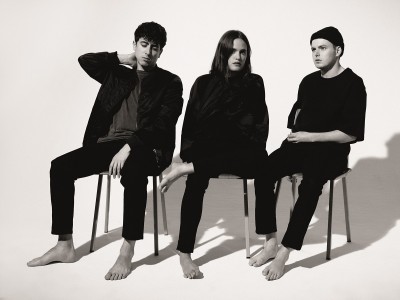
Any artist can tell you that a good piece of work takes advantage of both its positive and negative space. Wet’s lead singer, Kelly Zutrau, has done this with the group’s debut album, “Don’t You,” as she takes us through a journey of love, loss and reflection.
The inspiration of ‘90s rhythm and blues and lush-pop in Wet’s music is clear with its reliance upon a strong female voice. Zutrau’s unique sound holds strong in carrying the complex melodies of the album through instrumentals, silence and its highly-focused content matter.
Each song presents a different aspect of the confusions of youth — passion, heartbreak and regret. The intimate feelings portrayed in songs like “You’re the Best” are juxtaposed by the bitterness in songs like “Don’t Wanna Be Your Girl,” which are distinguished by their cutting silences. “Don’t You” makes a point about conveying the complexity of emotions, but the album’s best moments center around simplicity.
The song “Deadwater” is a slow-rocking groove that sounds booth sweet and melancholy, mimicking the track’s description of a doomed relationship. It’s driven by the fluidity of the chorus, but Zutrau’s voice shows remarkable ability to hold its own in the instrumental silences. Most notably, her voice shows versatility here that we see reflected throughout the rest of the album.
A slow-down-speed-up mix of beats driven by Zutrau is representative of the out-of-the-blue suddenness of the heartbreak and the earth-shattering clarity found when looking back at something and realizing that it’s been in vain.
This is shown in “Don’t Wanna Be Your Girl,” the album’s greatest success. Beginning with drowned out lyrics that slowly become clear, like a realization is dawning upon the listener. The song deals with naivety and pent-up frustration that must eventually be let loose in order to grow.
Any good story of loss has to paint a picture of what life was like before. “Don’t You” does this with the song “You’re the Best,” which has a downbeat beginning that gives it a sexy unpredictability, allowing it to transform into one of the happier songs of the album. Driven by a lively guitar riff, it gives the album a look into Zutrau’s life beyond heartbreak and regret.
Again, Wet shows that it has more than slow, brooding ballads up its sleeve with “All the Ways,” the most upbeat track on “Don’t You.” The high-tempo, pop-ish track resents the passion that Zutrau feels for the unspecified inspiration of the album. This sweet melody makes the more torturous moments of the album even more painful.
“These Days” ends the album on a note of self-reflection. It’s the simplest track on the album with only a plain accompaniment and some ambient synth in the background, but Zutrau’s voice sounds stronger than anywhere else on the album as she belts out a mantra of survival. It’s a song about slowly moving on with life and taking the pain of reality day by day, and it ends the album on an uplifting note.
Wet is overall successful with a first album that knows what it wants to do. However, there is certainly room for future improvement. While the group’s technique of melodies driven by Zutrau’s voice and laden with synth-powered ambience works for most of the album, in songs like “Body,” the line between harmony and over-production becomes clear.
As a whole, “Don’t You” serves as a promising start to Wet’s career. Now that the band has created an album centered on heartbreak and recovery, it can hopefully emerge with new tunes. The commitment to its niche succeeds in establishing that the group can write fantastic breakup songs, but it would be nice to see Wet push the boundaries with different sounds in future releases, so it can prove that it’s more than just a one-trick pony.

















































































































